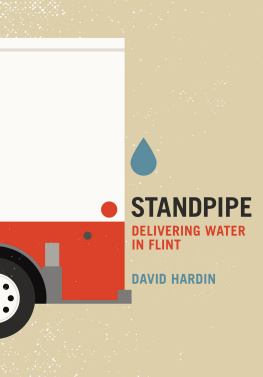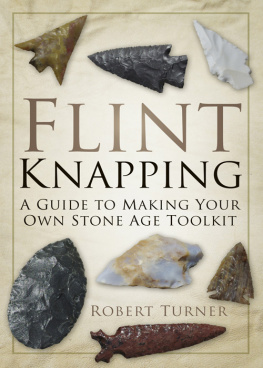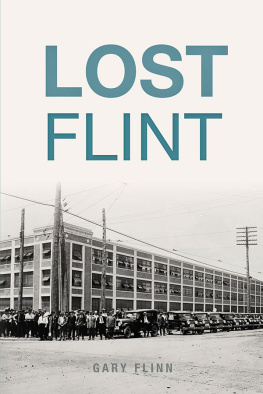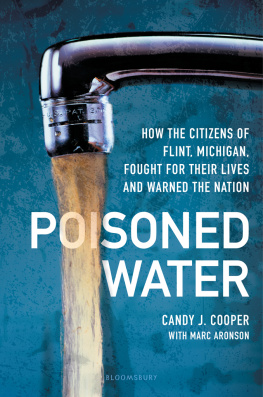

 STANDPIPE
STANDPIPE
DELIVERING WATER IN FLINT

 STANDPIPE
STANDPIPE
DELIVERING WATER IN FLINT
DAVID HARDIN

Copyright 2020 by David Hardin
All rights reserved. This book or any portion thereof may not be reproduced or used in any manner whatsoever without the express written permission of the publisher except for the use of brief quotations in a book review.
Printed in the United States of America
First edition 2021
1 2 3 4 5 6 7 8 9
ISBN: 978-1-948742-82-5

Belt Publishing
5322 Fleet Avenue
Cleveland, Ohio 44105
www.beltpublishing.com
Cover by David Wilson
Book design by Meredith Pangrace
Contents
For Sue. So, it shall always be.
Hed grown up on endlessness and his mother. In the beginning, they were the same thing.
Philip Roth, Sabbaths Theater
Have a blessed day, Im told over and over again. Ive never felt so blessed. Kindness, bestowed by people too bereft of surplus to warrant such generosity. Im grateful, but my gratitude is leavened with a liberal dash of liberal guilt. I wince despite myself every time I hear it uttered. Repetition dulls the sting. Liberated by banality, I mourn the loss.
ONE
L ate February, 2016, I complete training and qualify as a Red Cross Disaster Relief Volunteer (DRV) behind the wheel of a boxy, red and white Red Cross Emergency Response Vehicle (ERV). I deploy to an officially declared Disaster Relief Operation in Flint, Michigancity long on the wane, lately devastated by a municipal water supply contaminated with dangerous levels of lead. Children and the aged are at greatest risk. A local pediatrician is among the first citizens to sound the alarm, spurred to action by a rash of symptoms turning up in her young patients. By early 2016, the men, women, and children of Flint have been drinking lead-contaminated water, far in excess of federal safety standards, for many months. Widespread lead contamination is, sadly, become common place. But in 2016, Flint is novel among that unfortunate club of communities devastated by man-made disasters sexy enough to have captured the publics fickle imagination. Right up there with Three Mile Island (Pennsylvania), the Upper Big Branch Mine Disaster (West Virginia), Love Canal (New York), and Times Beach (Missouri).
The seeds of the crisis had been planted over a year before, in 2014. I deploy to a city for which I have no particular affinity, nor harbor any bad blood. Just another town through which Ive passed free of claim, like Camden, Maine; Greenville, South Carolina; or Great Falls, Montana. Unlike those other places, however, Flint is only a ninety-minute drive north from where I live, home to fellow Michiganderstrolls like me, living below the Mackinac Bridge. My taxes went to pay the salaries of the men responsible for the disaster and those endeavoring to deflect responsibility and avoid criminal prosecution. Michigan taxpayers and the citizens of Flint will foot much of the bill and endure all of the heartache for a scheme borne of market solution, anti-tax, small government machinations. What happened in Flint could happen to any community. It could happen to mine, but thats unlikely. I live in a mostly white, financially solvent suburb just north of Detroit. The majority Black citizens of Flint were considered politically irrelevant and socially expendable by those in power long before their water supply was contaminated with lead. Flint, like other poor communities of color around the state, is much more likely to suffer the disastrous consequences of ideological social engineering put to practice.
My mother, Ima Nell Hardin, began showing the first signs of decline that will lead to her eventual death, around the time Flints water troubles began. We were inseparable my first five years, moon and planet in symbiotic orbit around my often absent yet omnipresent father.
Gene Hardin had escaped north from impoverished east Tennessee a few years after returning from the war. He fled a dirt-poor tobacco patch in the shadow of Great Smoky Mountain National Park. Freed himself from a tyrannical grandfather, a cold, overbearing mother, and a father bullied into submissive silence. He never looked back on the twilight hollow of his unhappy childhood. He was lured to Michigan by good paying union work in the lower tier of the automobile industryhauling new Chryslers to small towns throughout Ohio, Pennsylvania, and West Virginia. Ima Nell married him straight out of high school, where she had demurred on academics for an independent study in the gossamer web of dewy boy-and-girl romance, patiently waiting for eligible prey to light, unawares. Together, they fled south across the Georgia state line to marry in a hasty civil ceremony, before lighting off for the territoriesHamtramck, Michigan.
Hamtramck, then as now, is a point of entry for immigrants from around the world, hungry for work, opportunity, and a better life for their children. When my Southern parents arrived, they washed ashore well behind established beachheads of Great Migration African Americans, Poles, and other eastern and southern Europeans, refugees displaced by war, pogrom, revolution, and Jim Crow. Many had prospered sufficiently to purchase homes elsewhere. Poles and Italians north along Gratiot Avenue, then out beyond Eight Mile Road. Jews and Chaldeans to points north and west. Latinos to the southwest side, and north to the orchard land of Macomb County. White southerners, south and southwest to cities like Lincoln Park, Taylor, and Romulus. African Americans had thrived since the nineteenth century in vibrant Black Bottom, just east of downtown Detroit, but were red-lined to isolated enclaves scattered throughout the metropolitan area after that neighborhood was razed to make way for a major freeway. Gene and Ima Nell followed Gratiot north, settling two miles beyond the Detroit city limits.
Ima Nell adjusted to the isolation of the new suburb, the long, lonely nights, family 600 miles distant. They may as well have been an ocean away in the Old Country. Her constant companion was the radio until I came along. Between that first Hamtramck apartment and our small brick ranch on a tract carved from old orchard, they had rented a flat on East Grand Boulevard near Belle Isle. Only a few years earlier, in the early years of the war, the island park was the scene of a bloody race riot between newly arrived Southern whites and vested Black auto workers. She worked for a time in the office of a downtown Detroit life insurance company, putting her typing skills to use. She loved the work; loved the freedom and the thrill of sidewalks teeming with postwar optimism.
Gene was on the road much of the time during their first decade in Michigan, returning home to shower, sleep, and eat before heading out once again. He didnt share her enthusiasm for the maddening crowd, her yearning for home. I wonder whether it had ever been his intention to anchor himself to one particular place, the intense desire to escape his guiding light. With a mortgage hanging over his head, a second child on the scene, roots firmly planted in northern soil, Genes discontent flowered and spread like kudzu. I was drawn to him like a moth to a flame, but my desire for my father made it necessary to renounce my mother and deny the strong bond we had once enjoyedI learned to marginalize her in order to curry his favor. Likewise, she was obliged to choose.
Next page















 STANDPIPE
STANDPIPE
